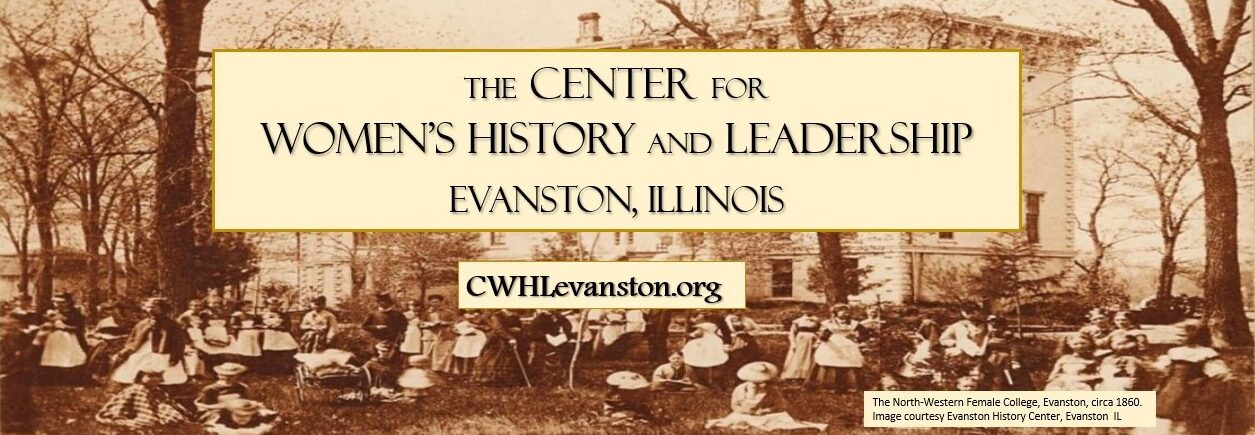By Janet Olson, Archivist
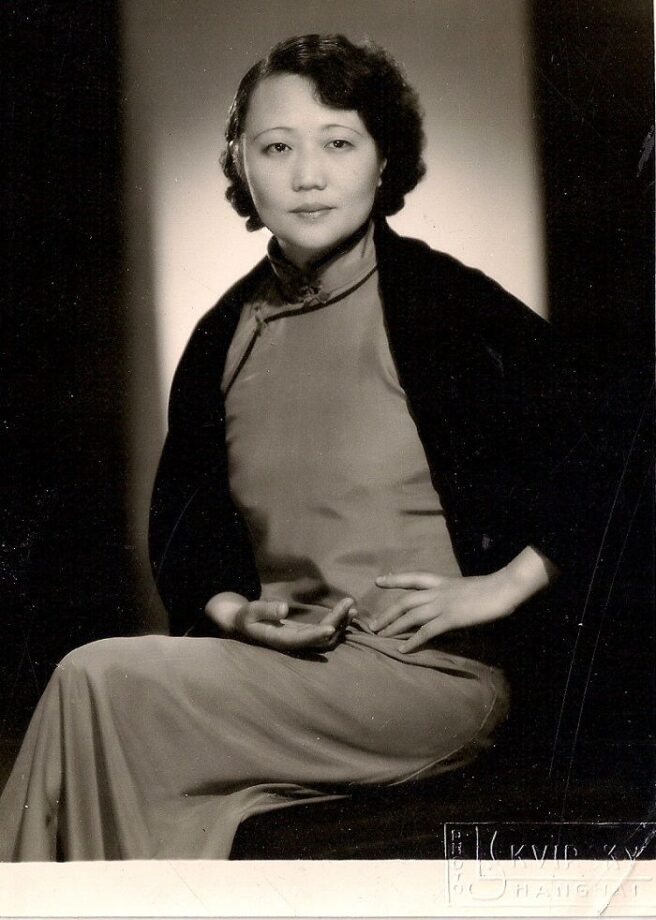
Feminist, social reformer, writer, and WCTU leader Liu-Wang Liming (1898-1970) was born and raised in rural China. As a child, with her father’s support, she resisted the sexist custom of foot-binding. She attended an American mission school for girls many miles from her home. Upon graduation in 1916, she came to the US to attend Northwestern University, sponsored by Anna Gordon, President of the Woman’s Christian Temperance Union. She took the name Frances Willard Wang to honor WCTU president and NU’s first Dean of Women Frances Willard (who died in 1898).
Wang was active in organizations at Northwestern, including the YWCA and the Chinese Students Club. She is pictured in Northwestern’s yearbooks, and in a classmate’s scrapbook she wrote ”Happy is the girl who is self-controlled, for to her belongs the whole world.”[1]
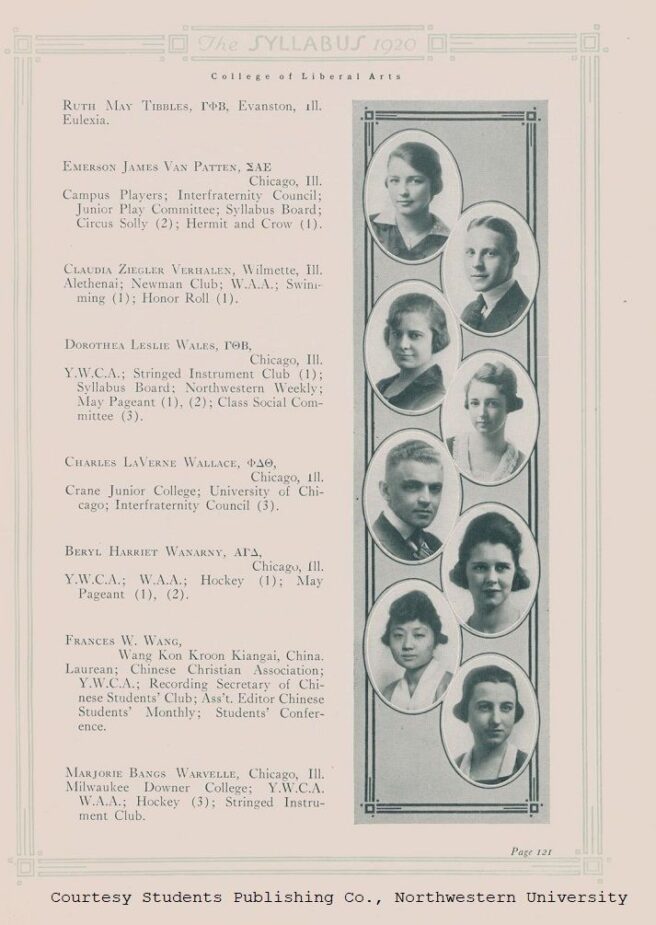
For most of her time in Evanston, she lived at Rest Cottage. Wang traveled to lecture on behalf of the WCTU, and wrote a leaflet entitled “A Chinese Student’s Appeal” exhorting Chinese students in the US to support prohibition when they returned home.
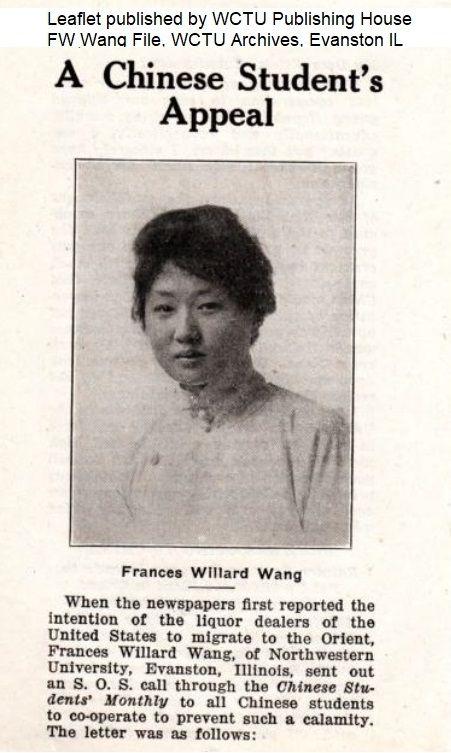
In 1920, Wang received her Bachelor’s Degree from Northwestern, and returned to China as a full-time organizer for the World’s Woman’s Christian Temperance Union (WWCTU). With the ambition to be “the Frances Willard of China,”[2] Wang built and mobilized a network of some ten thousand WCTU members under the auspices of the Chinese Women’s Temperance Union. Her reports, published in the WWCTU’s newsletters or printed in the national Union Signal newspaper, provide vivid accounts of her work and life during transitional times in China.
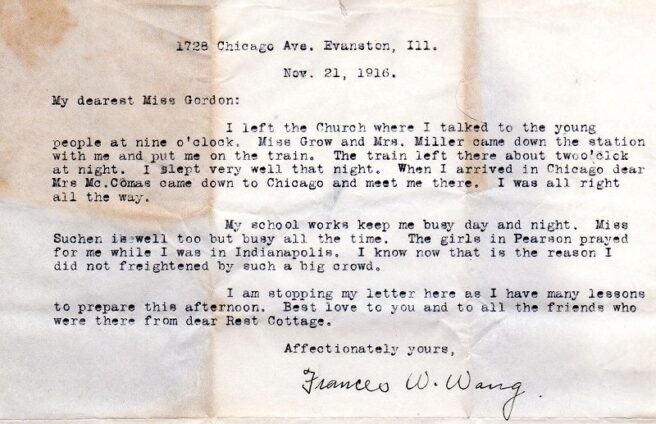
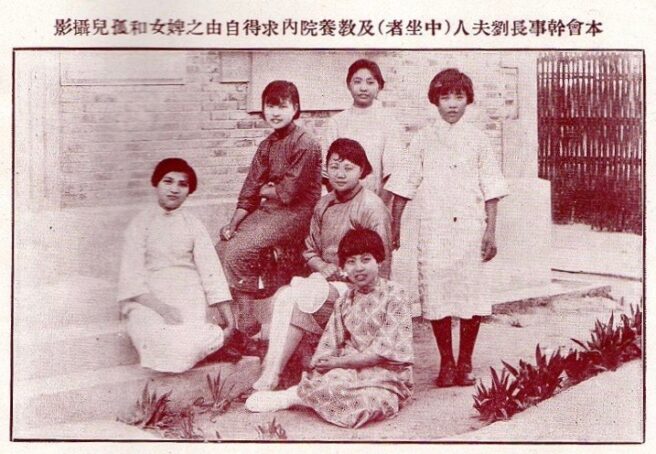
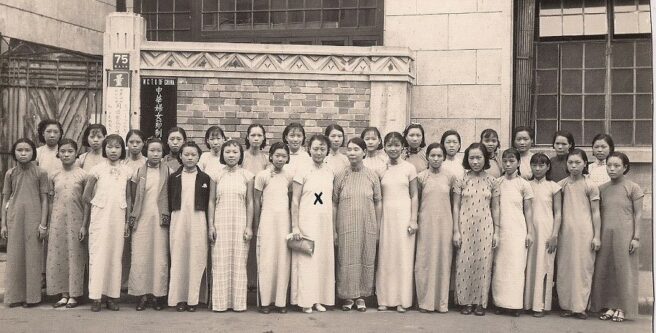
Wang married Dr. Herman C.E. Liu (1896-1938), a graduate of the University of Chicago and Columbia University who became the first Chinese president of the University of Shanghai. (He was assassinated in 1938.) The couple had three children: Franklin Willard Liu, Gordon Bretthauer Liu, and Martha Jenni Liu, all named after significant American benefactors (three of whom were from the Evanston area).
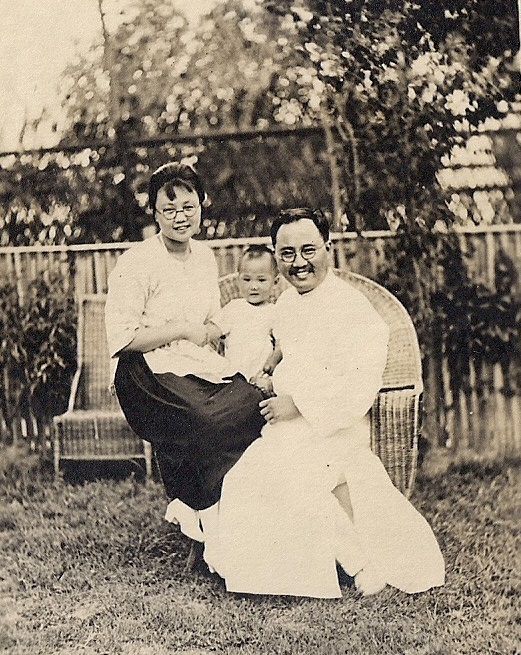
Liu-Wang remained committed to reform throughout her life. She was the only woman elected to participate in the first Opium Suppression Congress held by the central government. She was also the first woman to write about the history of the Chinese Women’s Movement. She chaired the Suffrage Association of Shanghai; founded China’s first Settlement House for Beggars and the first cooperative housing for women; and worked to open the first public health fair on birth control in Shanghai.
During World War II, Liu-Wang organized industrial enterprises and vocational schools for women as well as orphanages and daycare centers. She served as a representative to the central government under the leadership of the Nationalist Party and then the Communist Party. Liu-Wang was known for her independence, vocal opposition to the civil war, and pro-democracy stance. Meanwhile, she wrote poetry, books, and articles. During the Cultural Revolution, Liu-Wang Liming became a political prisoner and died in jail in Shanghai in 1970.
In 2018, Liu-Wang’s granddaughter, Margaret Liu, gave a talk at the Willard House about her research into her grandmother’s complex and multi-faceted life.
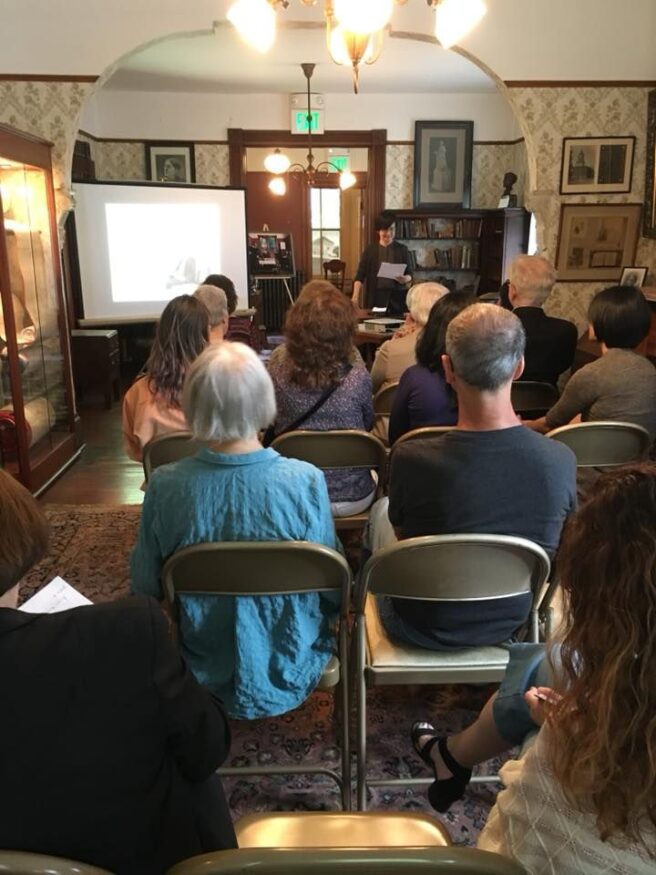
Unless otherwise noted, images and documents are from the WCTU Archives. Both the WCTU Archives and the Northwestern University Archives hold materials documenting Liu-Wang’s life and work.
[1] Edith A. Sternfeld Scrapbook. Series 31/6/55 Northwestern University Archives
[2] Letter from Anna Gordon to NU Dean U.S. Grant, July 12, 1917. FW Wang File, Northwestern University Archives
